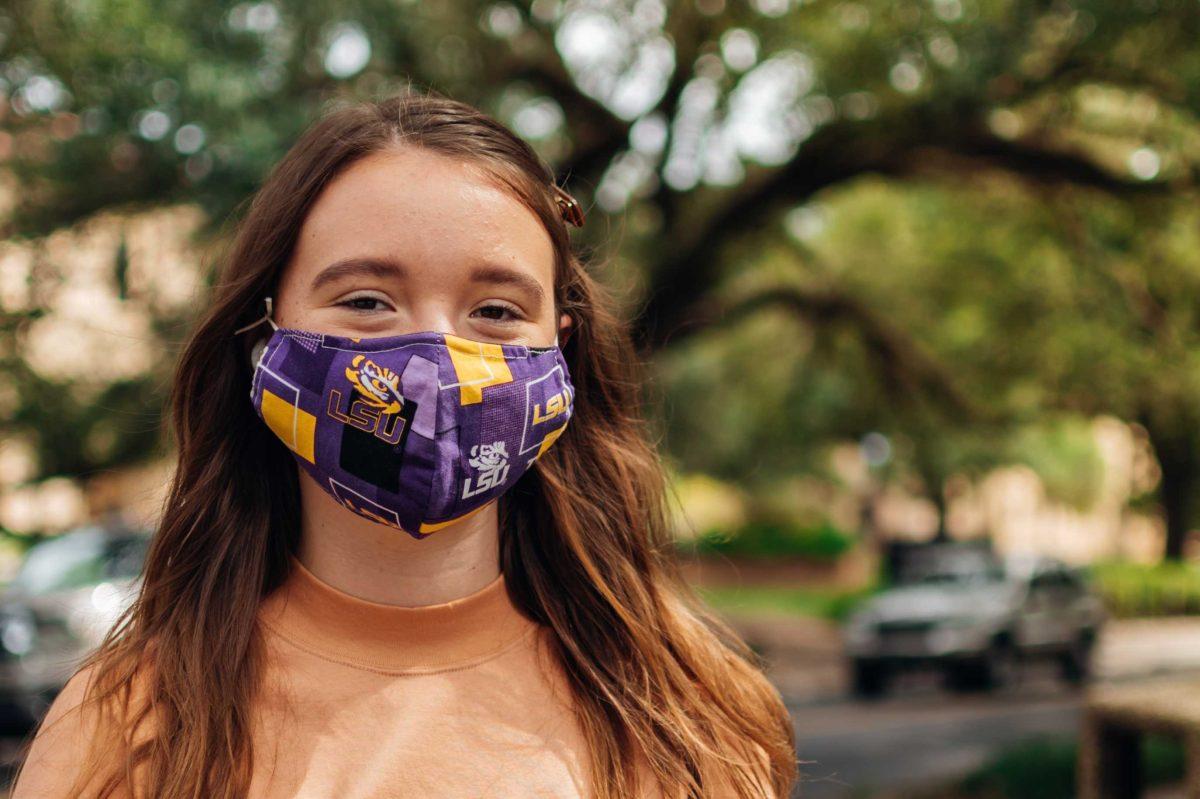Imagine someone tells you you’re going to get a pin prick. No big deal, until you’re informed that there’s a 50-50 chance that the prick will give you brain damage and lead to a host of prolonged symptoms for the foreseeable future.
That’s how Dr. Lucio Miele, a professor at LSU School of Medicine, explains to young people the threat of long-COVID, a variety of symptoms that persist longer in patients after contracting COVID-19.
Young people on average do not experience severe COVID-19 symptoms that involve hospitalization or lead to death. But the poorly understood after-effects of the virus are concerning, according to researchers.
“I’m not really afraid of a pin prick,” Miele said. “But that’s the kind of probability calculation that somebody has to make. The risk that needs to be considered in one’s evaluation is not just getting sick, or not getting sick, but what’s going to happen next.”
Long COVID, also known as “long haul COVID,” “post-acute COVID,” and “post-COVID conditions,” is not yet fully understood by doctors and researchers. Prolonged symptoms include difficulty breathing, difficulty thinking or concentrating, chest pain, sleep problems, mood changes, change in smell and taste, impotence and menstrual changes.
“It’s concerning, because we still don’t understand a lot of it,” said Dr. Joe Kanter, the Louisiana state health officer. “We also don’t understand how to best treat it, there really is no identified antidote for it.”
Several Louisiana-based institutions, including LSU’s Pennington Biomedical Research Center and LSU Health New Orleans, will investigate long COVID under a grant from the National Institutes of Health.
The grant is part of the NIH’s Researching COVID to Enhance Recovery Initiative, which aims to enroll 30,000 to 40,000 people from across the country over the next year and a half to study their post-acute COVID-19 symptoms. These subjects will be monitored for five years.
Miele, one of LSU Health’s lead researchers on the project, said the study will look at all aspects of long COVID and aims to explain how many people experience it, why some people develop it and others don’t, and how to treat it.
“You can have a very mild COVID as a young person, and end up with symptoms that last for months or years. And it’s very hard to predict,” Miele said.
Most studies show that about half of all COVID-19 patients experience long COVID symptoms. Others suggest some prolonged symptoms could be present in 80% of patients.
“There’s been symptoms described that can affect almost any part of the body,” Kanter said. “It potentially affects a very large number of people. We’ve had over 760,000 people in Louisiana who have contracted COVID.”
Miele shared two theories of what he believes the research will show. The first being that long COVID is more common than people believe. The other being that a vast range of long-term effects will be discovered.
“Everything that we know so far tells us that this is not just a respiratory virus,” Miele said. “The virus does circulate in blood, it does affect the walls of blood vessels. And so it’s going to damage some of the organs that are most sensitive to vascular damage.”
All of the body’s most crucial systems are sensitive to vascular damage, including the brain, the heart, the lungs, and the kidneys.
According to Miele, studies show little correlation between the severity of acute COVID-19 and the likelihood of having long-COVID symptoms.
Miele pointed out that while scientists now know more about how to treat acute-COVID, with the advent of new antivirals and the use of monoclonal antibodies, long-COVID is still being treated on a symptom-by-symptom basis. “If we don’t understand the pathogenesis of the condition, we’re not going to be able to treat it out and then symptomatically,” Miele said.
While the study will last for five years, Miele anticipates results being released on a rolling basis. Miele encourages those who have had a recent COVID-19 diagnosis to consider joining the study, regardless of age.
“If for nothing else, because you’re going to be monitored super carefully over the next several years for any possible consequences of the virus,” Miele said, “and because you’re going to help the healthcare community understand this condition and how to treat it.”
Miele also encouraged those who have any symptoms after having acute-COVID should seek medical attention, as even symptoms like fatigue or headache can be indicative of long COVID.






